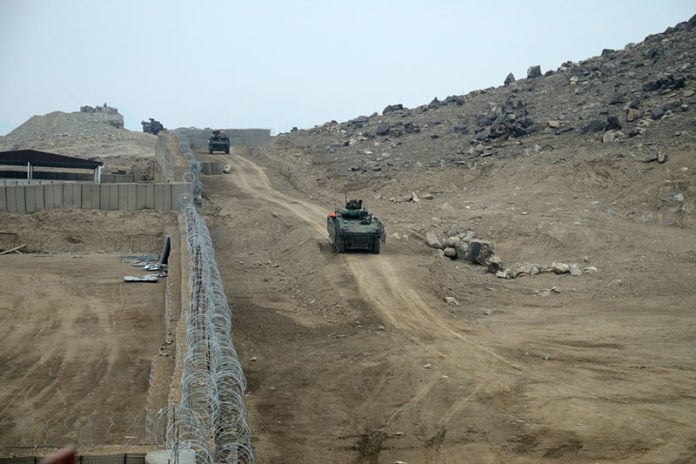In the latest of a slew of corrupt Afghanistan reconstruction projects, the U.S. government blew more than $4 million on a shoddy military training center in Kabul, according to a federal audit released this month. It’s part of a broader, fraud-infested initiative that nevertheless keeps receiving huge sums of American taxpayer dollars. When the Taliban was booted from power in 2001, Uncle Sam committed a huge chunk of change to help rebuild Afghanistan by building and renovating facilities such as schools, prisons, hospitals and industrial parks.
As of March 2017, Congress has appropriated an eye-popping $117.3 billion for U.S. relief and reconstruction activities in Afghanistan. The money flows through the Department of Defense (DOD), State Department and the famously corrupt U.S. Agency for International Development (USAID). Judicial Watch has for years monitored and reported on the Afghanistan reconstruction debacle that continues fleecing American taxpayers.
Most have been documented in tremendous detail by the Special Inspector General for Afghanistan Reconstruction (SIGAR). They include the mysterious disappearance of nearly half a billion dollars in oil destined for the Afghan National Army, a $335 million Afghan power plant that’s seldom used and an $18.5 million renovation for a prison that remains unfinished and unused years after the U.S.-funded work began.
Among the more outrageous expenditures are U.S. Army contracts with dozens of companies tied to Al Qaeda and the Taliban. The reconstruction watchdog recommended that the Army immediately cut business ties to the terrorists, but the deals continued. Another big waste reported by Judicial Watch a few years ago, involves a $65 million initiative to help Afghan women escape repression. The U.S. government admits that, because there’s no accountability, record-keeping or follow-up, it has no clue if the program was effective.
In a humiliating failure exposed earlier this year, the U.S. government’s costly effort to counter narcotics in Afghanistan actually resulted in a huge increase in poppy cultivation and opium production. Opium production rose 43% in the Islamic nation, to an estimated 4,800 tons, and approximately 201,000 hectares of land are under poppy cultivation, representing a 10% increase in one year alone.
In the case highlighted this month, the U.S. Army Corps of Engineers (USACE) awarded $17.1 million to an Afghan company called MegaTech that was supposed to complete a facility called Kabul Military Training Center (KMTC). The contract was for the construction of new facilities and renovation of several existing ones, according to the SIGAR’s lengthy report. The compound is Afghanistan’s primary training base for new Afghan National Army recruits, with about 18,000 receiving training in 2016. Newly constructed facilities included three barracks, two dining facilities (DFACs), three storage buildings, eight latrines, and seven guard shacks. The costly project was such a failure that parts of the compound have never been used.
Despite being handsomely funded, the facility was not constructed or renovated according to contract requirements. “There were instances of poor design and construction, contractor noncompliance, and unauthorized product substitution that resulted in the potential waste of as much as $4.1 million in taxpayer funds,” SIGAR writes in its report. The watchdog lists the following examples: Propane gas cylinders were placed too close to the new facility, which could lead to a gas explosion in the kitchens; certified fire-rated doors were not installed as required; counterfeit fire extinguishers were installed; Although the contract required adherence to National Fire Protection Association standards, which specify at least 10 feet of separation between propane gas cylinders and any ignition source or building, USACE designed and approved specifications with “zero clearance” between the cylinders and the DFACs. “As a result, despite USACE paying $3.9 million to build two new DFACs, the kitchens have never been used to prepare meals because of gas issues that could lead to explosions,” the report says.






























